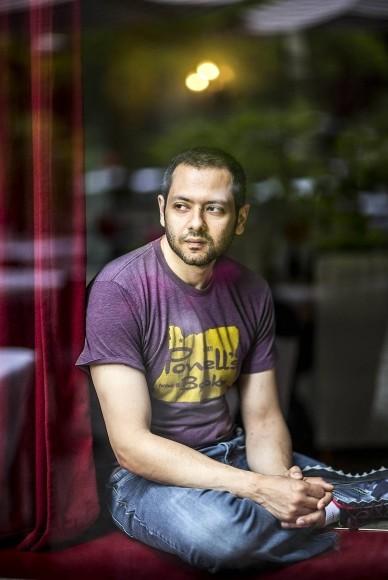
Né(e) à : Le Caire, Égypte , 1982
Omar El Akkad est un romancier et journaliste canado-égyptien.
Il a travaillé en tant que journaliste pour le "Globe and Mail", et son reportage sur un complot terroriste lui a valu le National Newspaper Award for Investigative Reporting en 2006.
Son travail l’a aussi amené à traiter des interventions de l’OTAN en Afghanistan, des procès militaires liés au Camp de Guantánamo, du Printemps Arabe et du mouvement Black Lives Matter.
"American War" (2017) est son premier roman.
Il vit aujourd’hui dans une forêt au sud de Portland dans l’Oregon.
Twitter : https://twitter.com/omarelakkad
À l'occasion du festival America 2018 à Vincennes, Omar EL AKKAD vous présente son ouvrage " American War " aux éditions Flammarion . Retrouvez le livre : https://www.mollat.com/livres/2094643/omar-el-akkad-american-war Notes de Musique : Free Music Archive. Retrouvez la librairie Mollat sur les réseaux sociaux : Facebook : https://www.facebook.com/Librairie.mollat?ref=ts Twitter : https://twitter.com/LibrairieMollat Youtube : https://www.youtube.com/user/LibrairieMollat Dailymotion : http://www.dailymotion.com/user/Librairie_Mollat/1 Vimeo : https://vimeo.com/mollat Instagram : https://instagram.com/librairie_mollat/ Pinterest : https://www.pinterest.com/librairiemollat/ Tumblr : http://mollat-bordeaux.tumblr.com/ Soundcloud: https://soundcloud.com/librairie-mollat Blogs : http://blogs.mollat.com/
This was in the days before – before Julia Templestowe became the rebel SOuth’s first martyr, its first killer, the patron saint of its war. It is often forgotten. There’s always a before.
The rebels recruited her with the bandages still fresh around her wrists. They found her in a bar on Farish Street across from the abandoned Alamo Theatre, its blue vertical sign missing its first and last letters. She was wearing a stranger’s throwaway dress, given to her by one of the nurses. She was drunk and alone once again with the terrible illness in her brain.
They knew how to find the ones who were most likely to do it. They kept watchers in the hospitals, where they looked for suicide attempts, and in the schools, where they looked for outcasts, and in the churches, where they looked for hard-boiled extremists feverish with the spell of the Lord.
From these, they forged weapons.
On the day the President was set to come to Jackson, they drove Julia to an abandoned farmhouse ten miles south of the city, where they outfitted her for death. She was to go in the guise of a pregnant woman. Within the cavity of her false belly they packed a thick paste of fertilizer and diesel fuel, planted with seeds of iron nail. They called it a farmer’s suit. A wire ran up along her chest and back down her left arm, covered by the sleeve of her shirt, and ending at a detonator taped to her wrist.
They’ll remember you for ever, they told her. When this is over they’ll build cities in your name.
Sometimes I thought about getting rid of the oil drum. I worried someone, a colleague from the university perhaps, would see it and think it a kind of petulant political statement, like the occasional secessionist flag or gutted muscle car outside houses in the old Red country – impotent trinkets of rebellion, touchstones of a ruined and ruinous past. I am, after all, a Sautherner by birth. And even though I arrived in neutral country at the age of six and never spoke to anyone about my life before then, I couldn’t rule out the possibility that some of my colleagues secretly believed I still had a little bit of rebel Red in my blood.
Les maris ne portaient jamais de noir. Les maris n'étaient jamais réduits à cette déclaration passive, jamais obligés d'avoir l'air triste partout où ils allaient pour le restant de leurs jours, comme de véritables symboles de deuil sur pattes. Les maris avaient le droit de s'emporter, de se mettre en colère, de venger leur perte en infligeant à d'autres ce qu'on leur avait infligé.
Auteur Mystère cher à mon Petit Coeur
Une pincée d'anticipation sociale:
22 lecteurs ont répondu





































